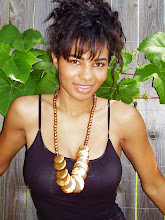Sunday, August 9, 2009
Saturday, August 8, 2009
Friday, August 7, 2009
Definition: Dream
"an aspiration; goal; aim
a wild or vain fancy.
something of an unreal beauty, charm, or excellence."
http://dictionary.reference.com/browse/dream
Definition: Kaboodle
"take your cat, kit, and kaboodle
take your broken down car, your smelly cigar
and just move, move right out of my life" (lyrics for Move)
"–noun Informal.
the lot, pack, or crowd: I have no use for the whole caboodle.
—Idiom
kit and caboodle"
http://dictionary.reference.com/browse/caboodle
Meaning of the name: Claridge (C.C. is short for Claridge Conrad White)
"Claridge:
from the Middle English, Old French female personal name Clarice (Latin Claritia meaning ‘fame’, ‘brightness’, a derivative of clarus ‘famous’, ‘bright’).
habitational name from Clearhedge Wood in Sussex, which is probably named with Old English cl?fre ‘clover’ + hrycg ‘ridge’. "
http://www.ancestry.com/facts/Claridge-name-meaning.ashx
Exploitation of African American Music
Happens all the time, baby! Pat Boone had the big hit with Fats'
"Ain't That A Shame" and Elvis covered Big Mama Thornton's "Hound
Dog." That's the way it happens in the world of R&B."(Marty quote)
"In her 2002 article in The Guardian, Helen Kolawole claimed, “Black music never stays underground. White people always seek it out, dilute it and eventually claim it as their own … This is fine, but be honest about it.” But Elvis Presley, in his public statements at least, consistently was “honest” about the debt his style of singing owed to black rhythm and blues."
http://www.elvis-history-blog.com/elvis-racism_2.html
History of Soul Music
"Style of U.S. popular music sung and performed primarily by African American musicians, having its roots in gospel music, and rhythm and blues. The term was first used in the 1960s to describe music that combined rhythm and blues, gospel, jazz, and rock music and that was characterized by intensity of feeling and earthiness. In its earliest stages, soul music was found most commonly in the South, but many of the young singers who were to popularize it migrated to cities in the North. The founding of Motown in Detroit, Mich., and Stax-Volt in Memphis, Tenn., did much to encourage the style. Its most popular performers include James Brown, Ray Charles, Sam Cooke, and Aretha Franklin. "
http://www.answers.com/topic/soul-music
Pop Music
"Pop music is a music genre that developed from the mid-1950s as a softer alternative to rock 'n' roll and later to rock music. It has a focus on commercial recording, often orientated towards a youth market, usually through the medium of relatively short and simple love songs. While these basic elements of the genre have remained fairly constant, pop music has absorbed influences from most other forms of popular music, particularly borrowing from the development of rock music, and utilizing key technological innovations to produce new variations on existing themes."
http://www.answers.com/topic/pop-music-1
Rise of Disco
And I'm telling you, our version of "One
Night Only" will revolutionize the music industry. (Curtis quote)
"Style of dance music that arose in the mid-1970s, characterized by hypnotic rhythm, repetitive lyrics, and electronically produced sounds. Disco (short for discotheque) evolved largely from New York City underground nightclubs, in which disc jockeys would play dance records for hours without interruption, taking care to synchronize the beats so as to make a seamless change between records. Artists such as Donna Summer, Chic, and the Bee Gees had many hits in the genre, which peaked with the release of the film Saturday Night Fever (1977). Disco faded quickly after 1980, but its powerful influence, especially its sequenced electronic beats, still continues to affect much of pop music."
http://www.answers.com/topic/disco
Backup vocalists
"Ladies I have the break of your lives! The Great Jimmy Early is in need of some back up help." (Marty quote)
"Working as a backup singer can give a vocalist the onstage experience and vocal training they need to develop into a lead vocalist. A number of lead vocalists such as Richard Marx, Mariah Carey, Cher, Gwen Stefani, Whitney Houston, Phil Collins, and Elton John learned their craft as backup singers."
http://en.wikipedia.org/wiki/Backing_vocalist
The Apollo Theatre
The Apollo Theater in New York City is one of the most famous music halls in the United States, and the most famous club associated almost exclusively with African-American performers. It is listed on the National Register of Historic Places, and is the home of Showtime at the Apollo, a nationally syndicated variety show consisting of new talent.
http://en.wikipedia.org/wiki/Apollo_Theater
Wigs-1960
"why do we need wigs in the first place?" (Effie quote)
"Before the days of synthetic hair production, wigs were normally made of human or animal hair. Wigs and hairpieces again came in to fashion in the 1960’s, and demand for the product suddenly soared."
http://www.articlesbase.com/health-articles/the-history-of-wigs-and-hairpieces-256387.html
Thursday, August 6, 2009
"Born in New York City, Krieger grew up in Westchester County, New York and attended school in Scarborough, New York, which had a theatre that was a replica of the Helen Hayes Theatre. He became interested in theatre and the dramatic arts, and he later studied creative and liberal arts at the American Universiyt in Washington, DC and Columbia University in New York. While still in his twenties, Krieger began composing for Off-Off Broadway. Eyen and Krieger first worked together on the 1975 musical version of Eyen's revue The Dirtiest Show in Town, called The Dirtiest Musical in Town.
In 1983, Krieger's musical The Tap Dance Kid, with lyrics by Robert Lorick, opened at Broadway's Broadhurst Theatre and went on to win two Tony Awards. It would be well over a decade before his next Broadway musical, Side Show, with book and lyrics by Bill Russell, opened at the Richard Rodgers Theatre in 1997. Side Show received four Tony nominations, including Best Score."
560 LEXINGTON AVE.
NEW YORK, NEW YORK 10022 USA



